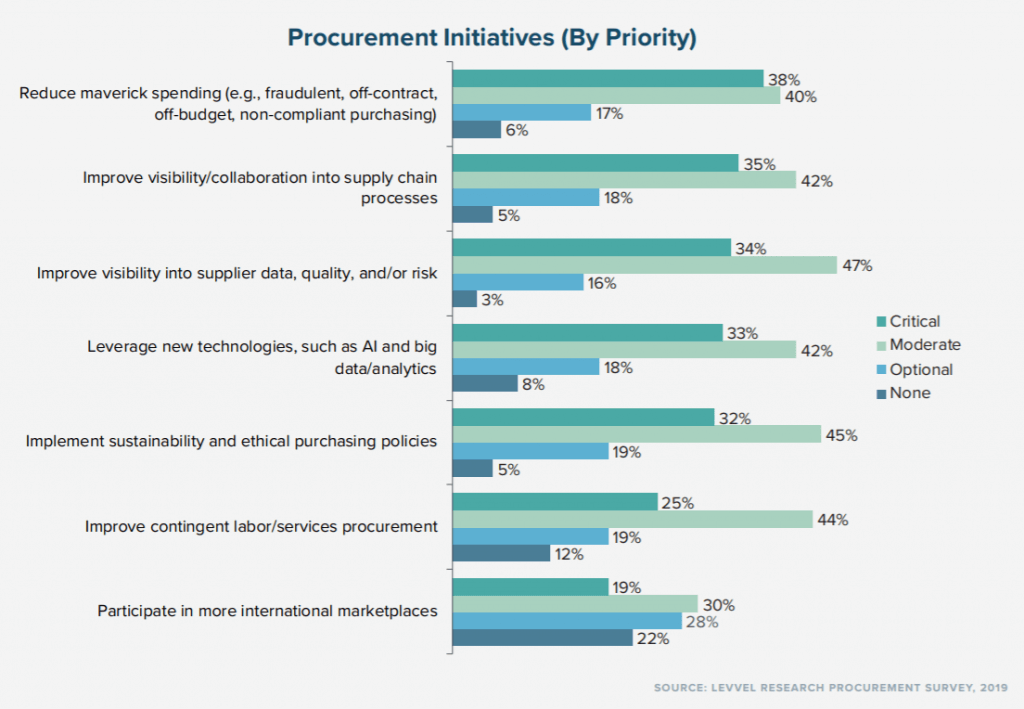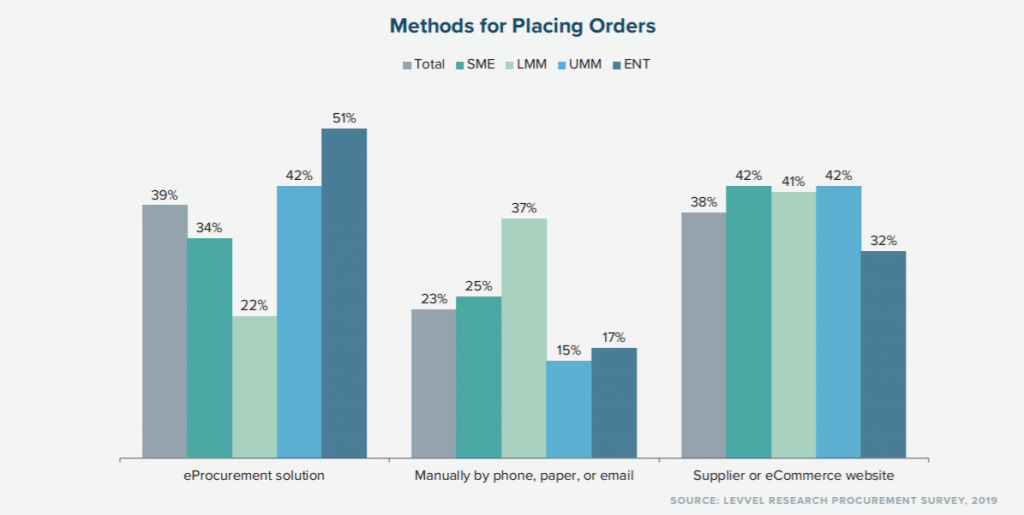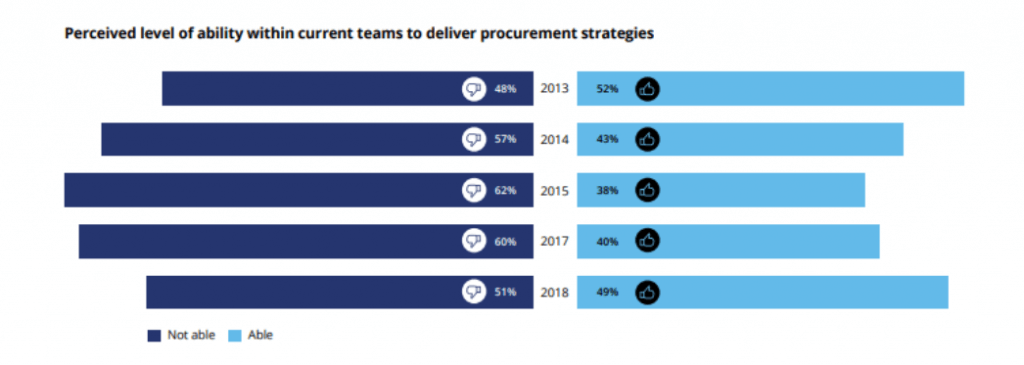In most cases, maverick Spend can be brought under control by the implementation of eProcurement software. However, many organizations continue to use outdated purchasing procedures due to a misperception of the causes and possible solutions for maverick Spend. This is unfortunate because such spending often leads to internal issues that can lower an organization’s operating efficiencies and reduce its bottom line.
What is maverick spend?
Maverick spend is an expense that results from purchases made outside of corporate guidelines and adopted procedures. It can be accidental or intentional and typically occurs when an employee unilaterally purchases a product.
One of the problems with maverick spend is that it tends to create a lot of confusion. For example, the accounting department may spend an inordinate amount of time attempting to match invoices and payments with purchase orders that do not exist.
There is also a higher likelihood of fraud when purchases are made outside of the procurement department’s purview. We recently discussed the ways to detect and prevent invoice fraud.
Another problem with Maverick Spending is that it can lead to the use of unauthorized parts and materials, which might violate the terms of a contract or create a safety hazard.
According to Levvel Research’s 2019 Procurement Survey, reduce maverick spending ranks as the most critical procurement priority.

Before you can begin to tackle the problem of maverick spend, you need to know what is causing it in your organization.
What is causing maverick spend in your organization?
Although several possibilities exist, here are four of the most likely culprits:
1. People
Your problem could be with your employees. It is possible that you have one or more rogue employees who simply don’t feel that the rules apply to them.
On the other hand, your employees may have a good reason for breaking the rules. Perhaps they are under extreme pressure to perform, and your procedures are so restrictive that your employees are unable to complete their tasks on time.
Another possibility is that employees don’t really understand how much value a solid procurement process can add to a company’s bottom line. In that case, education is the key.
2. Culture
A high level of maverick spend might indicate an unhealthy spend culture. Where that is the case, the cause is usually attributable to a combination of non-compliant employees and a lack of internal controls.
Unfortunately, many organizations have not installed newer technology that could provide the internal controls necessary to curb Maverick Spending. Of those that have, some are not taking full advantage of its capabilities.
There is also the problem of an independent culture that exists within the procurement department of some organizations. This typically results in resistance to change because employees believe that new technology is unnecessary.
3. Processes
It could be that your processes are ineffective and time-consuming. If this is the case, employees may find a way around them in order to get the job done. It might also be that your procurement processes are too decentralized. Although it is possible to effectively manage decentralized procurement processes, centralized processes generally provide more transparency and tighter controls.
Many of the problems associated with decentralized procurement can be solved by installing eProcurement software operating in a cloud environment.
Many organizations have switched to an eProcurement solution for placing orders, however, according to Levvel, there are still a large number operating under manual processes that increase the risk of maverick spending occurring.

eProcurement software provides additional flexibility and scalability, which is one of the keys to bringing internal controls up to date.
4. Lack of control systems
Maverick Spending often results from the lack of control systems that specify the allowable methods for placing orders, approving orders and the monitoring of all purchasing activities. One way to monitor spend activity is to compare actual spending to budgets. This is typically done in organizations that have procurement departments but not in organizations that lack one. However, some type of monitoring is necessary to controls costs.
Tips on how to prevent Maverick Spending
Maverick Spending has no place in the procurement process. Here are five tips on how to prevent it:
1. Conduct an investigation
In order to gain control over maverick spend, you need to determine who is doing the spending and why. A spend analysis, which we discussed the importance of in a recent blog, should be able to uncover where and when purchases are being made and by whom. Once that question is answered, you can take the necessary steps to prevent it.
2. Educate stakeholders
It is important that all stakeholders understand the importance of a proper procurement process and how it adds value to the company’s bottom line. However, according to The Deloitte Global Chief Procurement Officer Survey 2018, only 49 percent of CPOs believe that their current procurement teams have the required levels of skills to successfully deliver on their organization’s procurement strategy.

In order to establish a clear procurement policy within your organization, and reduce the risk of maverick spend, you may want to hold some meetings for educational purposes as well as structured training courses.
3. Review HR policies
If your investigation reveals that you have rogue employees making unauthorized purchases, your HR policies may need updating. For instance, are there rewards for following procedures and penalties for not doing so?
4. Fine-tune your procedures
Make sure that your purchasing rules and procedures are clearly defined. Larger organizations may find it beneficial to authorize only one or two buyers to make purchases. Other employees would be able to submit a request but would not be able to make a purchase. For this to be successful, all employees must clearly understand the rules.
5. Adopt an automated procure-to-pay solution
Digital procure-to-pay technology will ensure that everyone plays by the rules. These systems are able to track a purchase from the submission of a request all the way through the procurement process until the purchase has been made, paid for and closed out. Purchase orders can be automatically matched with invoices, which ensures that purchases are made only from approved suppliers.
It is also possible to catalog routinely-purchased products along with their prices and approved suppliers. This saves time and money because staff can quickly find the product they are looking for and can purchase it at an approved price from an approved vendor.
Conclusion
While going one’s own way can truly be an adventure, it has no place in the procurement process. If you are dealing with maverick spend, you should take the time to track it down and find out why it is happening. Then you will be able to institute control measures, which will result in improved efficiencies, lower costs and a better bottom line.



